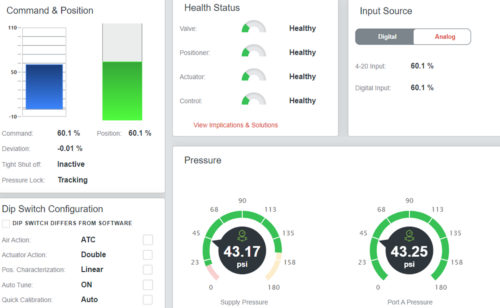Banning the ‘three Rs’ from our vocabulary
Over the last three years, there have been less than a handful of months where manufacturing failed to grow, and the current streak is starting to feel more like an expectation.
The Oxford Dictionaries word of the year for 2014 is ‘vape.’ It turns the perfectly good noun ‘vapor’-or in this case ‘vapour’ because the Oxford folks are British-into a verb meaning "to inhale and exhale the vapour produced by an electronic cigarette or similar device." In other words, we created a new word in the past couple of years-in this case, literally out of thin air-to add to the roughly 225,000 words in the English language, many of which may or may not contain an extra ‘u’ depending on which side of the Atlantic you’re using it. There are a number of estimates as to how many words there are in the English language, ranging from the roughly 475,000 in Webster’s Third New International Dictionary, Unabridged, to research findings that peg the number at somewhere higher than 1 million, with an estimated 8,500 words added each year.
Most of us don’t have a vocabulary that even tickles that number. We use the words we understand, words we are comfortable using. New words send us running to Google, which now is a verb unto itself, as in the sentence, "I Googled the new word Bob told me about." In short, we have a lot of words to deal with, and with more showing up every day, we’re suffering from a fair amount of language overload. I think it’s time to remove a few words from our current vocabulary, and I have three suggestions, all beginning with the letter ‘R’:
Recession: It’s over. The economists won.
After being dragged toward the financial abyss by Goldman Sachs and Enron and a few other risky bets with our money, we have fought our way back. It has taken aggressive fiscal policy, a few years of zero-interest rates, and a global economy built on an even weaker financial base than our own, but the U.S. economy again leads the world. Manufacturing gets the lion’s share of the credit for that outcome. We combined world-leading productivity with a rapidly emerging energy market and found ourselves outpacing most of Europe and all of Asia. The manufacturing sector should take a few quick bows and get back to work.
If we have learned anything in the past six years, it’s to take nothing for granted. We have to continue to improve processes and deliver high quality for the world market. But we don’t need to continue to use the word ‘recession.’ It is in our rearview mirror.
Reshoring: One of our most overused words, it is one without a clear definition.
Is a company that moved manufacturing operations to China and is now expanding operations in Texas reshoring? Is a U.S. manufacturer expanding operations in the U.S. while reducing operations in India reshoring?
It’s a word we’ve kept alive largely because it makes us feel really good that more Americans were getting manufacturing jobs. It has lost its value in a truly global manufacturing economy. When jobs and plants ran offshore a decade ago, manufacturing leaders chased lower wages and assumed the business model would remain the same. But when all the gains in U.S. productivity and a sharp rise in energy costs-and the impact of a global slowdown-changed the economic formula, those same leaders took a second look at manufacturing’s value proposition and understood the mistake they made. Our desire to export American manufacturing to other regions while maintaining a domestic manufacturing base is called growth. Our desire to attract foreign-based manufacturers to set up plants here in the U.S. also is called growth. That’s the only word we should focus on.
Recovery: Where does American manufacturing grow from here? That will be the function of a number of factors-political, economic, and social. But it is growing from a place of strength. The Institute for Supply Management’s PMI data shows manufacturing averaging 10% higher than average for the past year. That’s not a recovery. That’s our new baseline. ISM has been reporting 68 months (and counting) of economic growth, according to its formula, and more than 18 months in the manufacturing sector. Over the last three years, there have been less than a handful of months where manufacturing failed to grow, and the current streak is starting to feel more like an expectation.
In December, the PMI fell from 58.7 to 55.5, and the reaction in some circles was that manufacturing was slumping. In fact, it had simply gone from very, very good to just very good. It seems we have become a tad jaded about our manufacturing success story. So for the new year, Plant Engineering is going to talk about recession and reshoring and recovery. We’re never going to use the words. We’re going to talk about productivity, quality, safety, and growth-four old words with new meaning in 2015.
– Bob Vavra, content manager, Plant Engineering, bvavra@cfemedia.com
Do you have experience and expertise with the topics mentioned in this content? You should consider contributing to our CFE Media editorial team and getting the recognition you and your company deserve. Click here to start this process.






